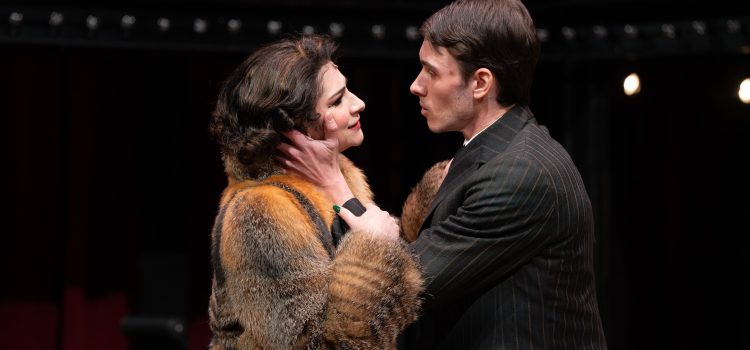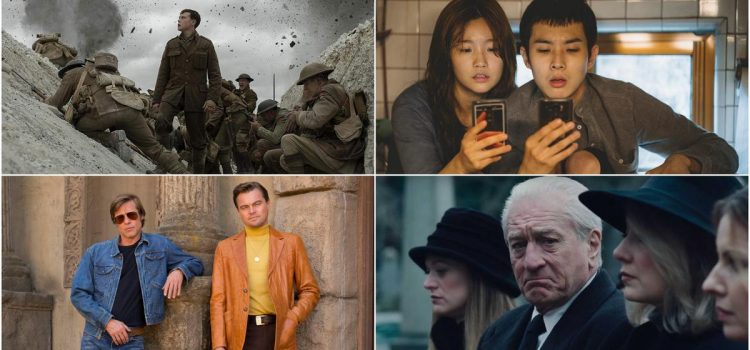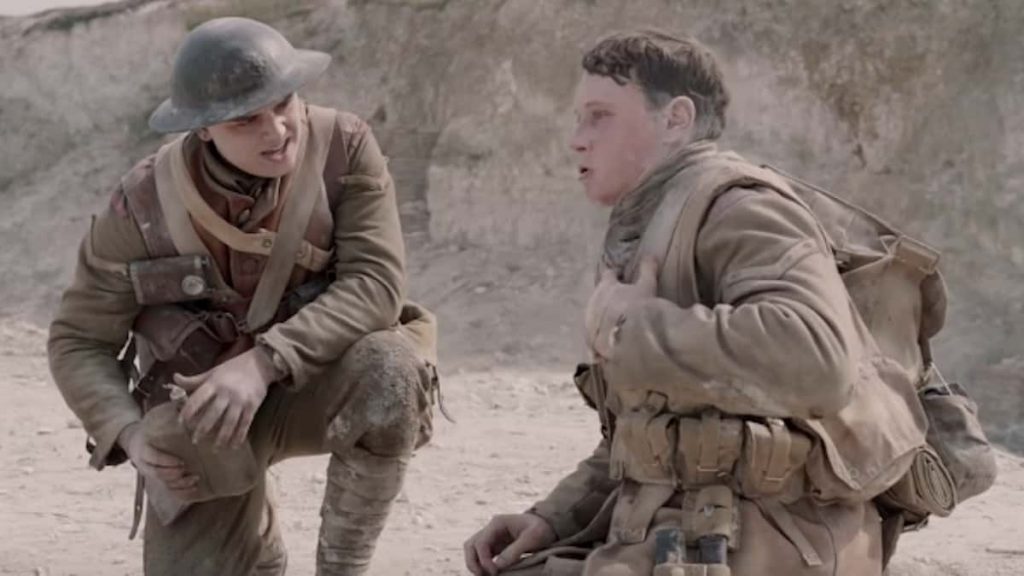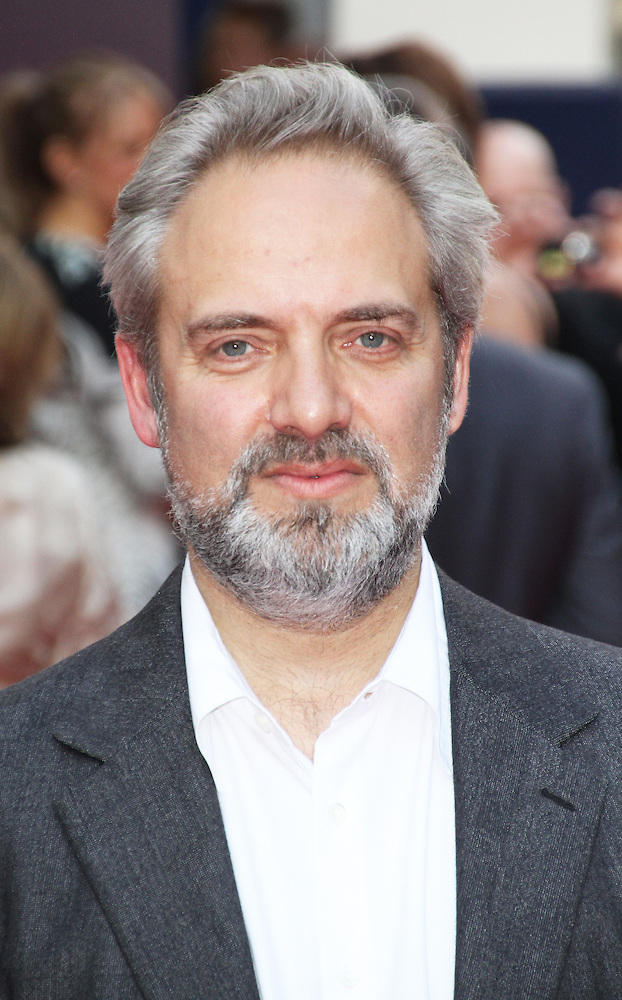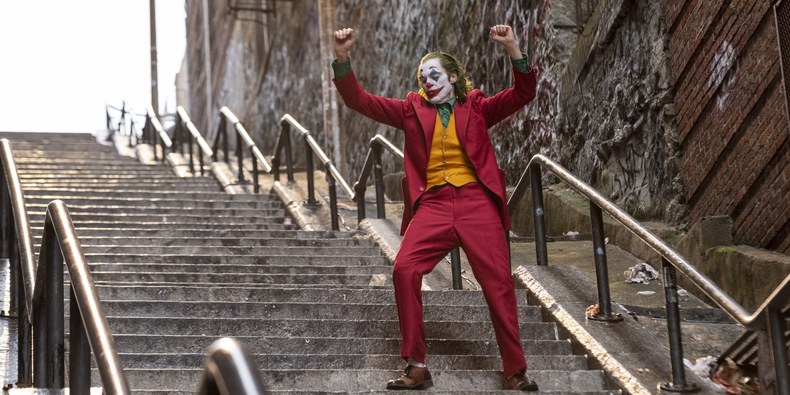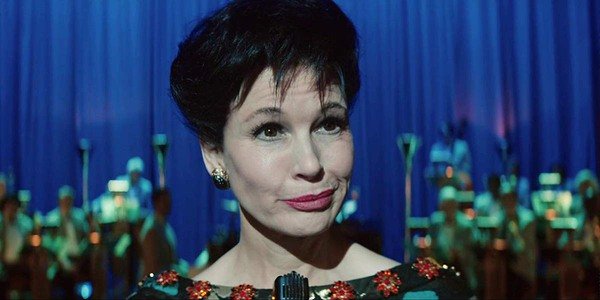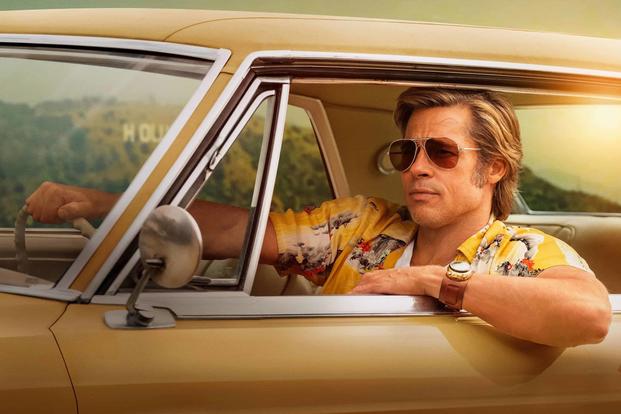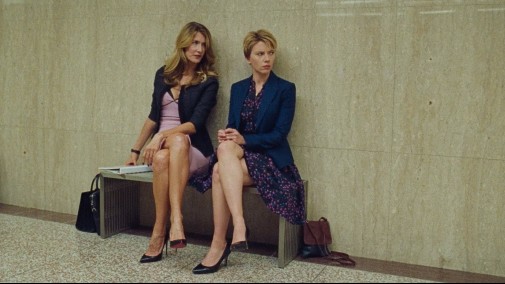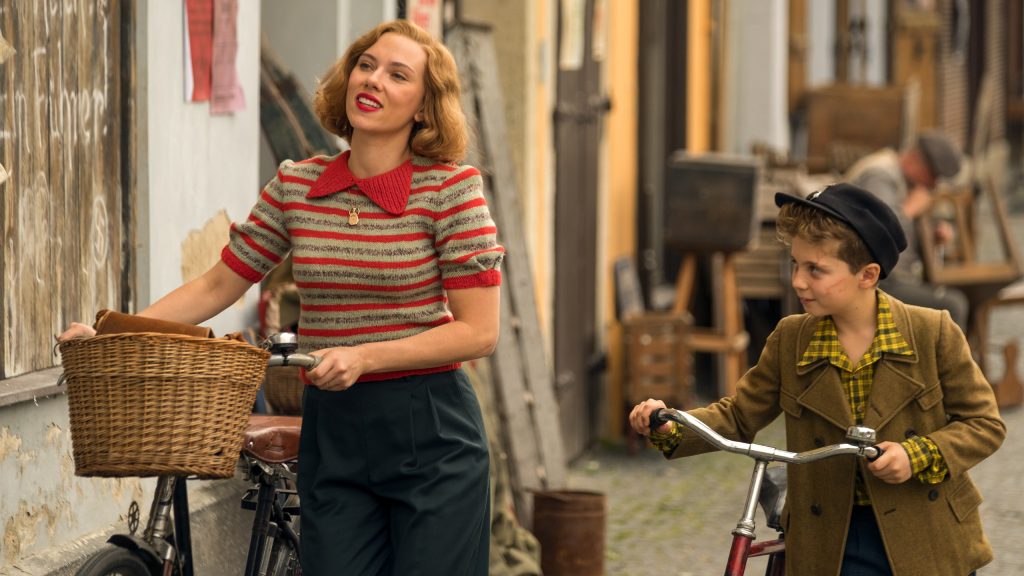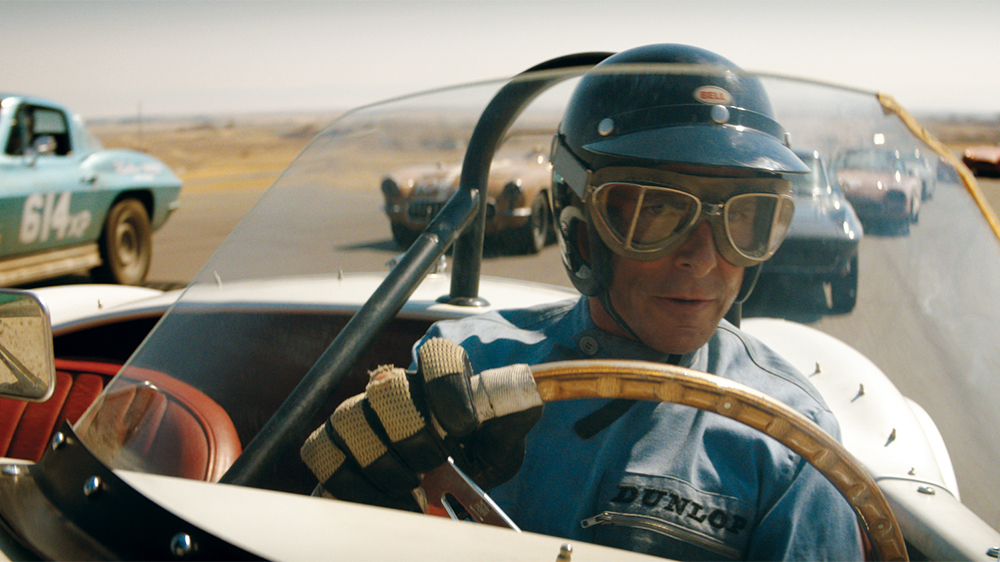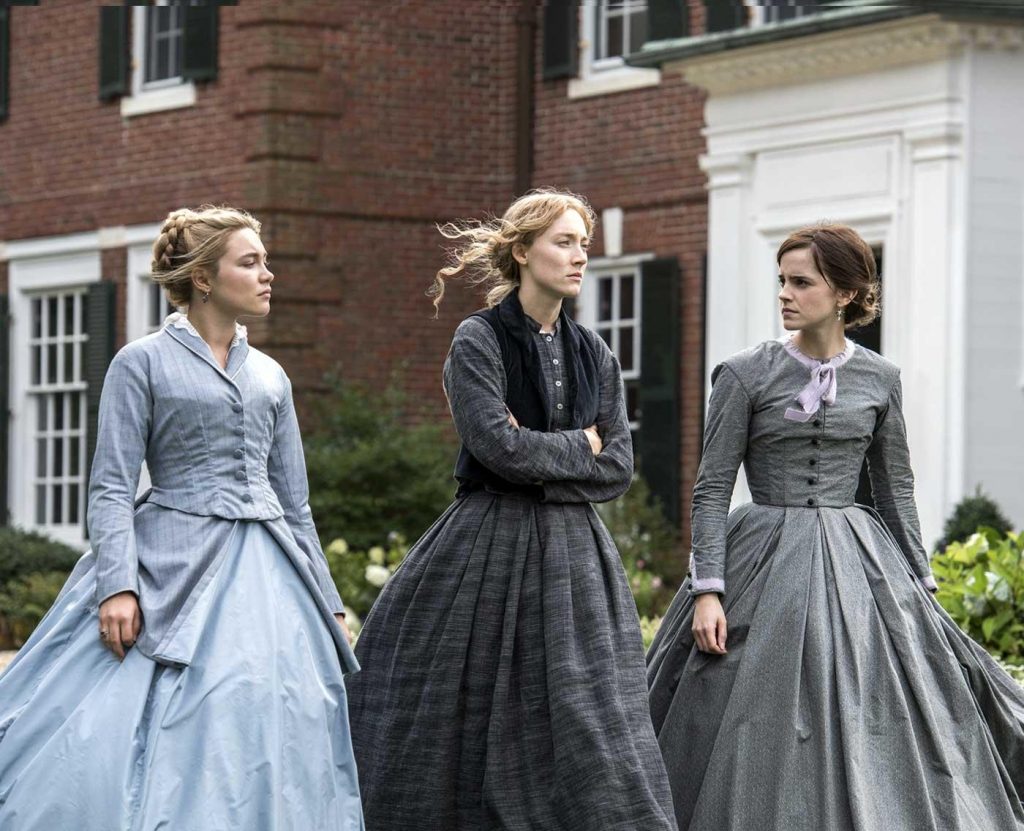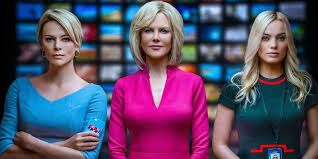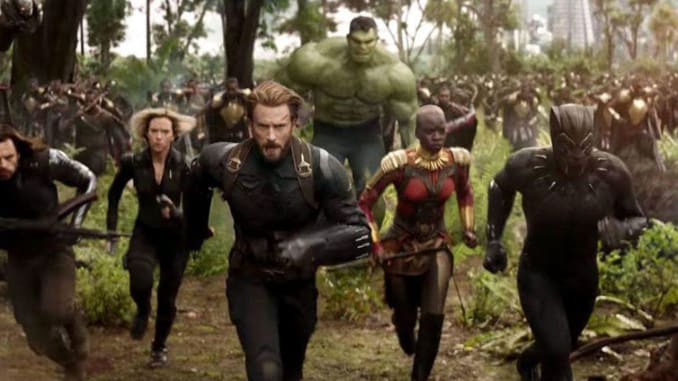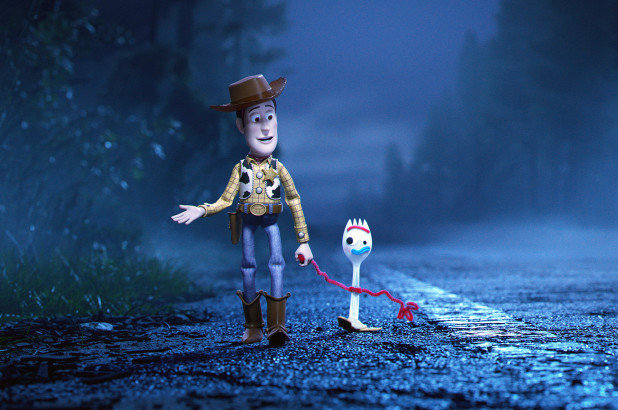By Lynn Venhaus
“There was a cabaret, and there was a master of ceremonies, and there was a city called Berlin, in a country called Germany… and it was the end of the world” – “Cabaret” 1966
Eerily relevant now more than ever, the musical “Cabaret” has only grown in potency and insight over its 59-year history.
In New Jewish Theatre’s haunting production, director Rebekah Scallet has faithfully adapted Sam Mendes’ brilliant 1998 revival that emphasized the sinister motives as we witness the gathering storm that would lead to World War II and the Holocaust.
However, she has focused on making sure the parallels between then and now are clear, and she has strengthened the shattering epilogue even more than Mendes did. She puts a hard-hitting NJT stamp on it.
As impressive as her track record has been since becoming the artistic director in 2022, it’s noteworthy to mention that this is the first musical she has directed in Wool Studio.
Through the decadent setting of the seedy Kit Kat Club in 1929 Berlin, we witness the end of the Weimar Republic and the rise of the Nazis.
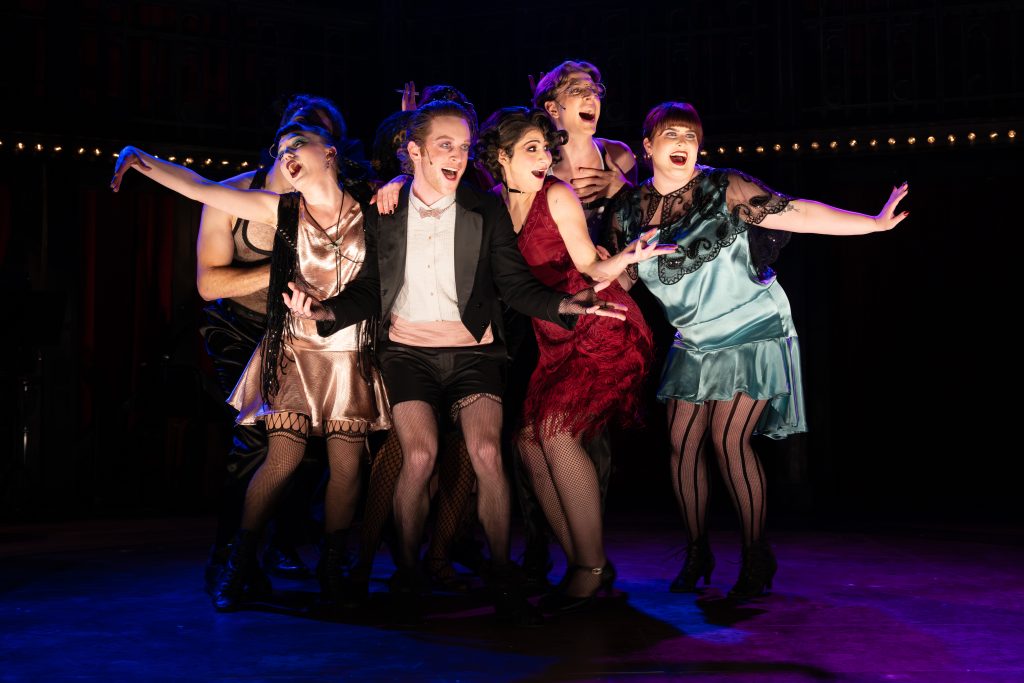
This passionate cast resonates because of how committed they are to the bleak and shocking themes. In their telling of this story, the desperation is palpable. And their layered approach to the hummable John Kander-Fred Ebb score is commendable.
As the cunning Emcee welcomes patrons in “Wilkommen,” he seductively entices: “Leave your troubles outside! So—life is disappointing? Forget it! In here, life is beautiful. The girls are beautiful. Even the orchestra is beautiful!”
In a magnetic performance, Spencer Davis Milford embraces the tawdriness and makes sure the ominous feeling grows. He lurks in other scenes where he’s not the saucy showman, his menacing presence foreshadowing the horrors that are ahead.
Oh, he has doused his “I Don’t Care Much” and “If You Could See Her” in irony, making those numbers even more chilling. After such iconic actors as Joel Grey, Alan Cumming and Eddie Redmayne have created their indelible portraits, Milford makes the role his own.
Fresh from his starring role as Frodo Baggins in “The Lord of the Rings” national tour, he’s back home making his mark in yet another special show. His work has always captivated since he was a youngster, whether on stage at The Muny or The Repertory Theatre of St. Louis, or a myriad of other companies. But this is quite a departure from anything he’s done.
When it was time for “Tomorrow Belongs to Me,” I braced myself, for its intensity remains affecting — and induces chills.
As conditions deteriorate in the polarizing landscape, those loyal to the “new Germany” face apathetic citizens and those who don’t understand the consequences.. In hindsight, how could they and why were people so unaware?
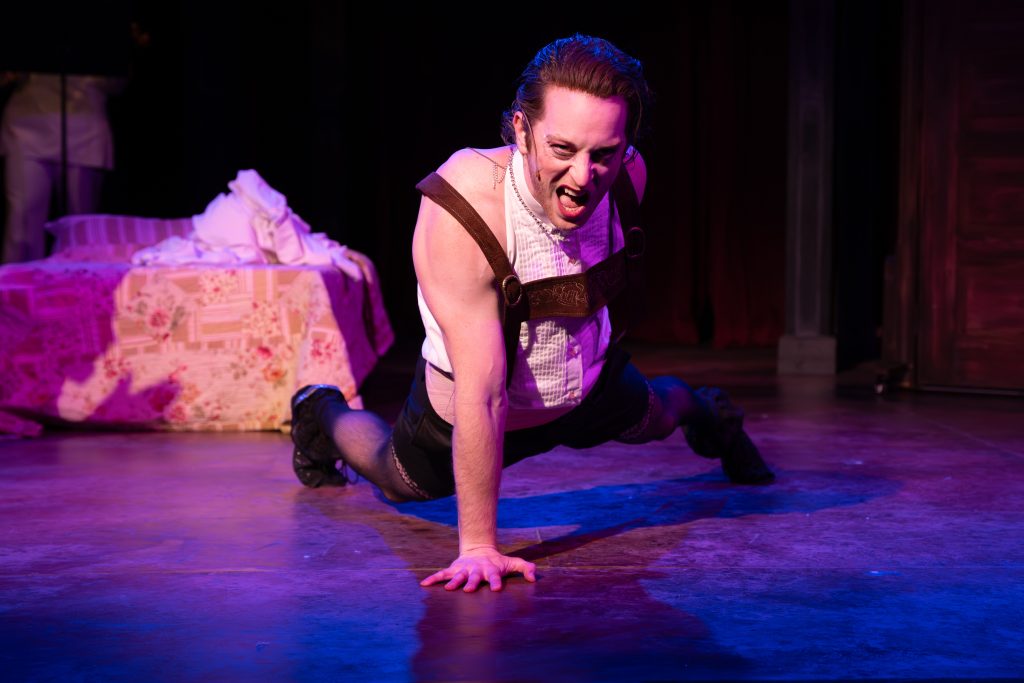
The innovative 1998 Tony winning Mendes collaboration with Rob Marshall deconstructed the heralded 1966 Hal Prince show in an earlier 1993 London re-imagining. While the original introduced social commentary in uncommon staging, this version heightens the present danger of ignoring anti-Semitism.
Mendes and Marshall would go on to helm Oscar-winning films in the early 2000s – “American Beauty” and “Chicago” respectively – but their impact has carried over for several vivid revivals in the past 27 years, notably 2014 and 2024, and in this striking, moving interpretation.
Scallet makes the most of the Wool Studio’s intimate setting, through an immersive experience placing some audience members in club configurations.
As the small but vibrant ensemble delivers high-energy precision in musical numbers, Scallet skillfully maintains fluidity throughout, with brisk staging, as one scene quickly melds into another.
Ellen Isom’s crisp and snappy choreography adds pizzazz to “Don’t Tell Mama,” “Mein Herr,” “Money,” and “Two Ladies,” and the robust kick line number in second act is an exceptional feat.
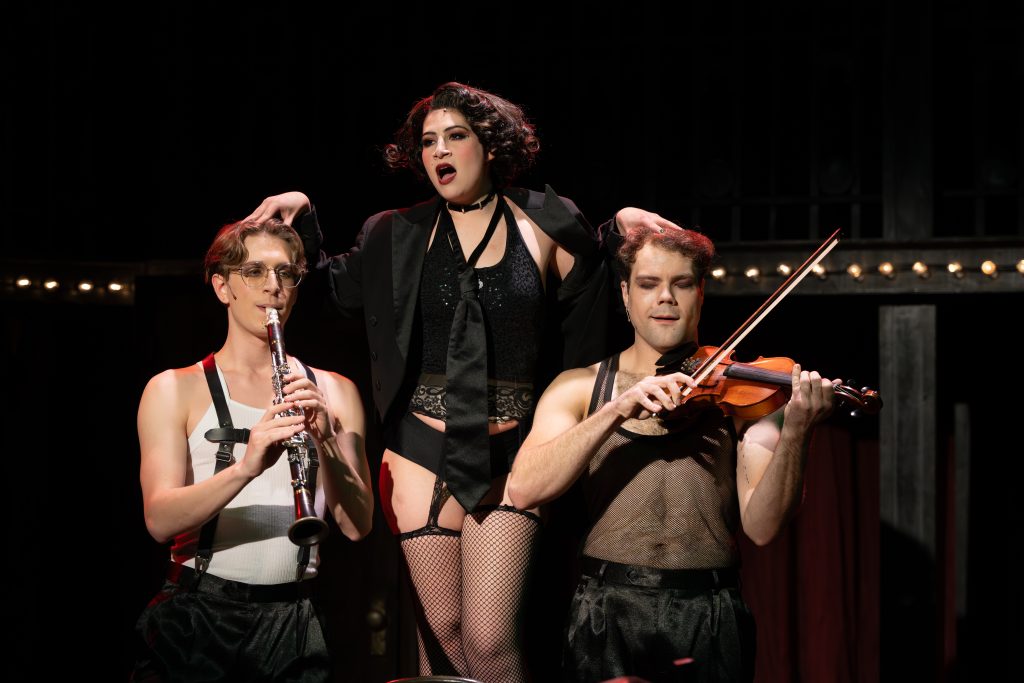
Music Director Carter Haney conducts the band on stage – Brad Martin on drums, Alerica Anderson on a stand-up bass, and Kris Pineda on accordion and trombone, and their polished presentation is a highlight.
Scenic Designer David Blake’s visually interesting set has a grand balcony implying secretive dalliances behind closed doors while the downstairs doubles as the nightclub stage and both Sally’s and Fraulein Schneider’s shabby living quarters.
Denisse Chavez’s lighting design shrewdly draws us into the action, highlighting the moods, while Justin Smith’s sound design captures the atmosphere.
Hailey Medrano and Dustin Lane Petrillo are strong together as flighty, flirty nightclub singer Sally Bowles and broke American writer Clifford Bradshaw, brought together by fate, desire and living on the edge.
Separately, they are heart-tugging. Petrillo brings a discernable gravitas to every role he tackles, including virtuoso work in “Red,” The Immigrant,” “Hamlet” and “A Long Day’s Journey into Night” on local stages during the past two years.
Not as innocent as he first appears, and initially caught up in the whirlwind, Cliff eventually becomes the keen —-and appalled — observer whose conscience can no longer ignore the signs.
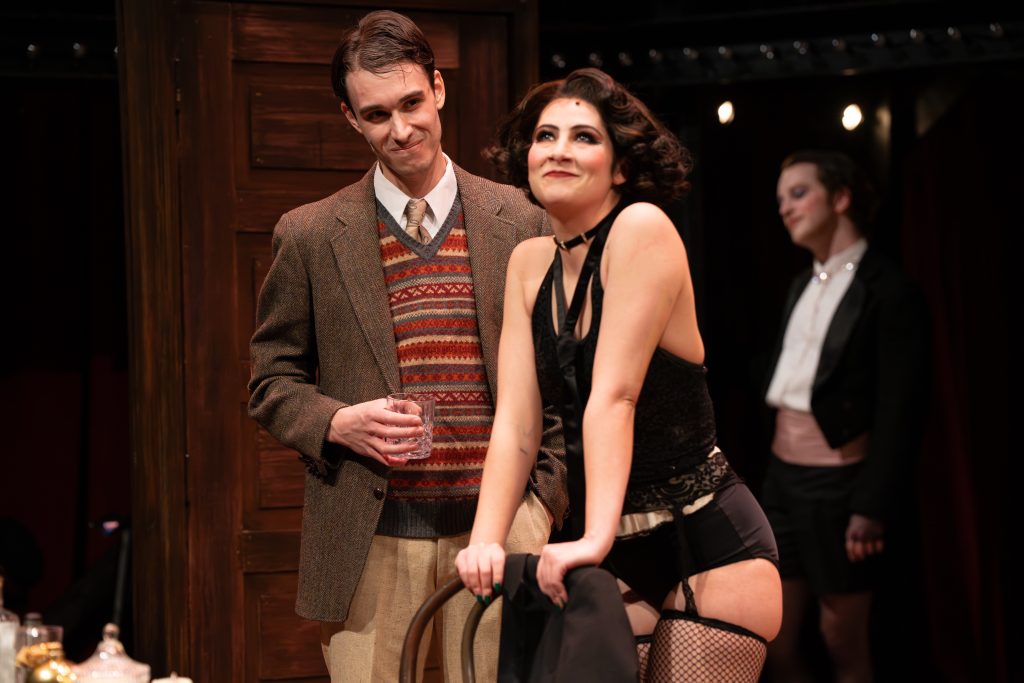
His character is the fictionalized British writer Christopher Isherwood, who would go on to write the semi-autobiographical novel “Goodbye to Berlin.” The musical’s book by Joe Masteroff is based on the 1951 John Van Druten play “I Am a Camera,” which is adapted from Isherwood’s collection of short stories that he wrote between 1930 and 1933, published in 1939.
Medrano, who has returned to St. Louis with memorable turns in NJT’s “We All Fall Down” last year and work with Metro Theater Company, is at her most heart-wrenching when she refuses to leave her reckless livelihood for the safety and promise of a new life.
She makes drastic self-destructive decisions after spending much of the show flaunting her tough exterior that masks an emotional fragility.
In a smart change of pace, Medrano slows down several classic renditions, boosting their power – the raw, emotional “Maybe This Time” and the title song, aka “Life is a Cabaret” (old chum!) – infused with regret – are both knockouts.
The undercurrent of irony laced with a stinging gut-punch, her anguish seeping through as she breaks. It’s all the more tragic that she chooses to remain oblivious to what’s happening.
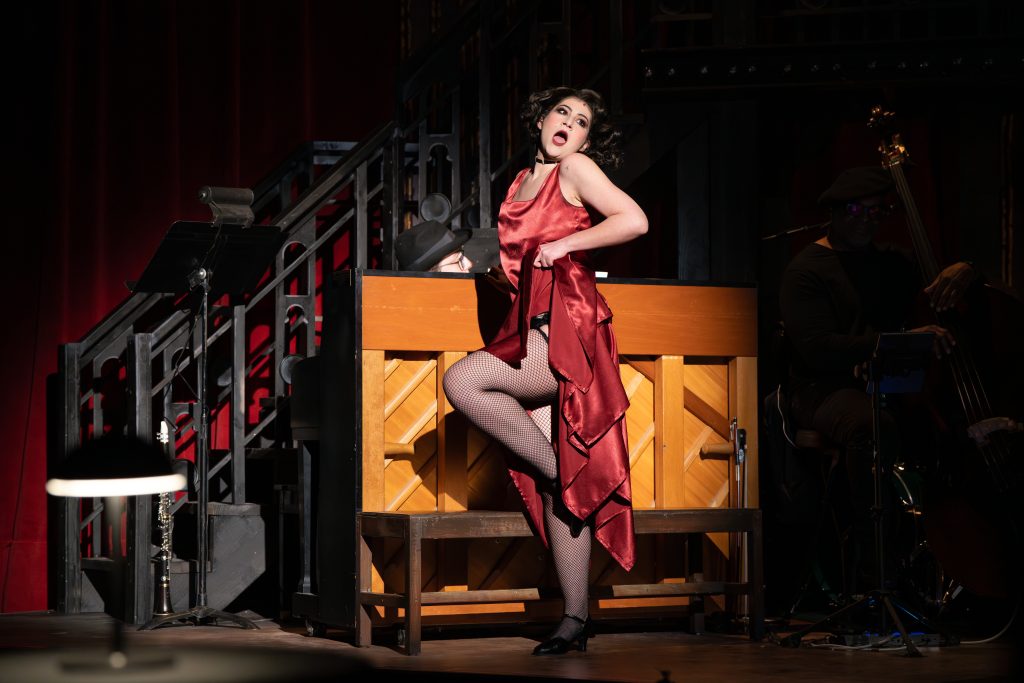
Because Sally is such a confused mess, she is not always sympathetic, but Medrano is alluring when she’s “always on” as Sally Bowles, and tender, for a time, with new love interest Cliff.
In the show’s most devastating performance, Jane Paradise projects world-weariness but also a yearning she hides with pragmatism. The veteran character actress is known for lived-in portrayals and is often the MVP in any ensemble.
As Fraulein Schneider who discovers late-in-life love, her doomed romance with shy, kind fruit vendor Herr Schultz, played sweetly by Dave Cooperstein, is agonizing, for he is a Jew, and their shared dreams collapse under the weight of current events.
From their joyous duets “The Pineapple Song” and “Married,” to her melancholy “So What” and the tragic “What Would You Do?” are sad reminders of the choices we make and life’s turns, depriving them of even a shred of happiness.
Also standing out is Aaron Fischer as the calculating smuggler Ernst Ludwig, whose growing fervor for the Third Reich is alarming. With an impeccable German accent, Fischer slowly reveals his bigotry. Fischer, fairly new to the professional stage, and splendid in last fall’s “Anastasia: The Musical” at Tesseract Theatre Company, is one of the most exciting performers to keep your eye on.
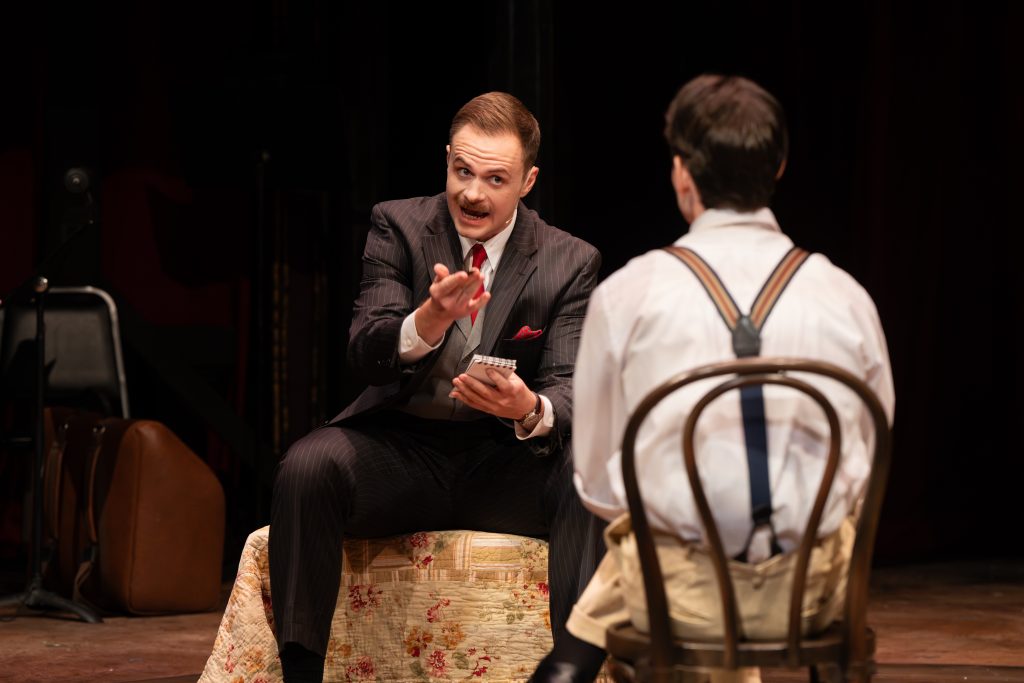
In fact, John Wilson’s dialect work is superb from all 11 performers. Besides doubling as soldiers and shady characters, the ensemble includes devil-may-care revelers celebrating their hedonistic culture before fear and chaos will grip their world. The nightclub’s naughty boys and girls, and their free-spirited customers live in the moment: Otto Klemp as Bobby, officer, ensemble and on clarinet; Jayson Heil as Victor, Max, ensemble and on violin; Amarachi Kalu as Lulu and on the flute; Caroline Pillow as Fritzie; and Lillian Cooper as Texas and the gorilla.
Costume Designer Michele Friedman Siler expertly incorporated luxurious shiny blacks and reds for the performers, often with torn fishnet stockings, and more middle-class attire for everyone else. Because of doubling characters, costume changes are remarkably smooth.
We won’t forget, we can’t forget the unflinching cautionary tale this enduring musical tells us.
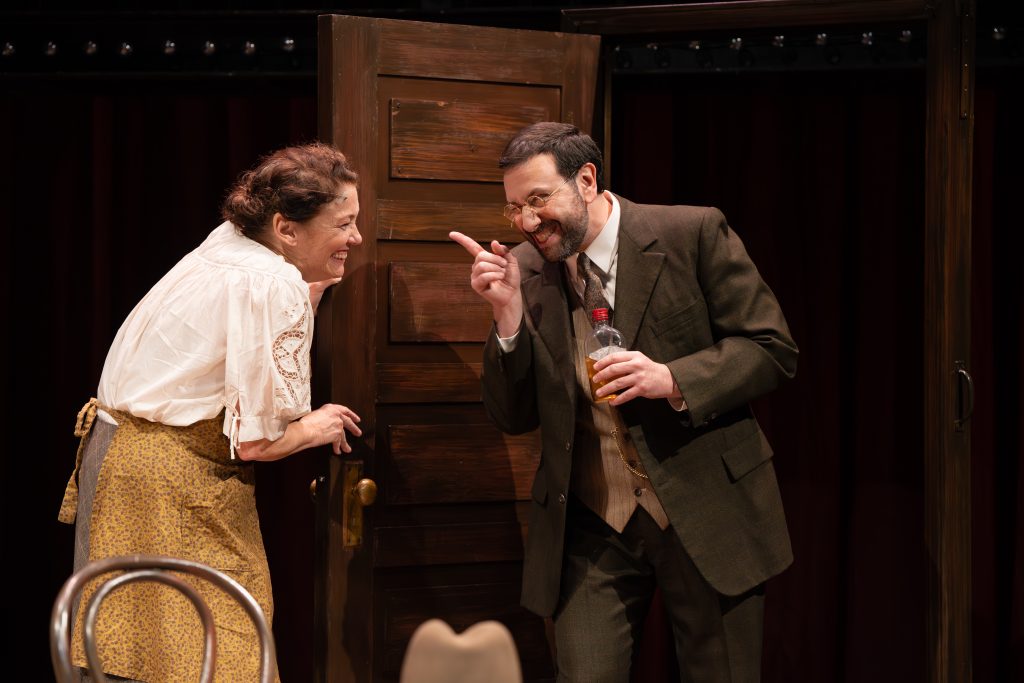
The New Jewish Theatre presents “Cabaret” from March 20 to April 13. Please check for showtimes, as several Wednesday shows have been added as well as an extended run. For mature audiences, the show has adult content. The show runs 2 hours and 15 minutes, with a 15-minute intermission. Performances take place at the SFC Performing Arts Center, 2 Millstone Campus Drive. For more information: jccstl.com. Tickets are available online at newjewishtheatre.org or by phone at 314.442.3283.
NJT’s 2025 Season is generously sponsored by Mary Strauss, with Cabaret receiving additional sponsorship from Stellie Siteman and the Siteman Family Foundation.
Alongside the production, NJT hosts special events that will give the audience a special understanding of the iconic musical:
Saturday, April 5 –The Weimar Republic the Rise of Hitler with Helen Turner
Have a conversation with Helen Turner, Education Director for the St. Louis Kaplan Feldman Holocaust Museum, as she presents information about the Weimar Republic and the real-life historical events that provide the backdrop for Cabaret. This event will take place between the matinee and evening performances on Saturday, April 5. Doors will open at 4:30 with the presentation beginning at 5pm. Light refreshments will be provided. The presentation is free, but reservations are required at https://formstack.io/80312
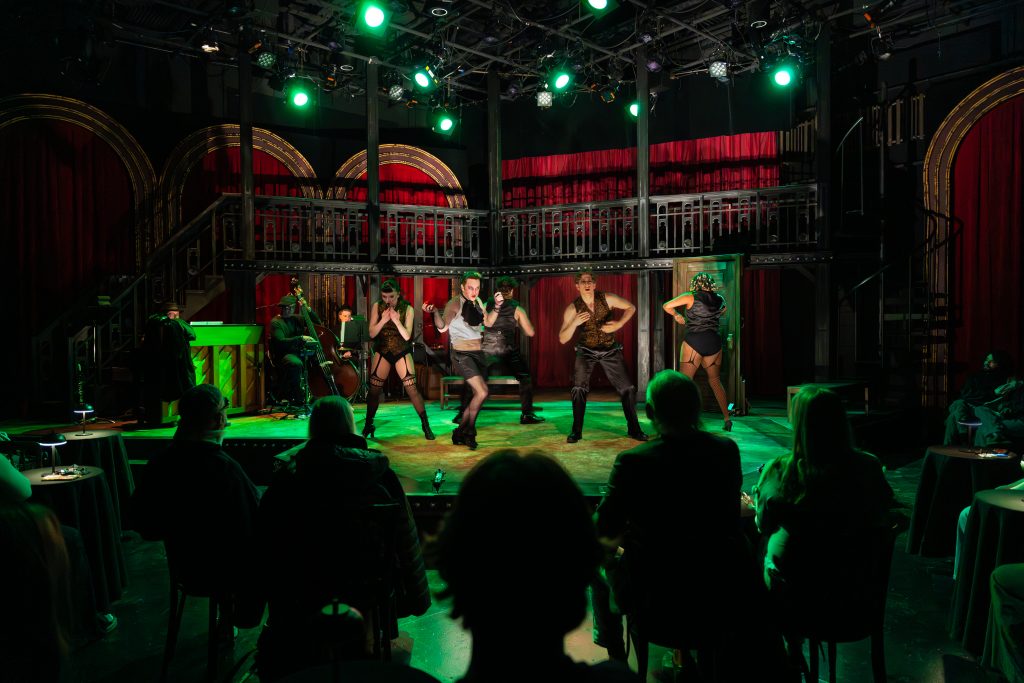

Lynn (Zipfel) Venhaus has had a continuous byline in St. Louis metro region publications since 1978. She writes features and news for Belleville News-Democrat and contributes to St. Louis magazine and other publications.
She is a Rotten Tomatoes-approved film critic, currently reviews films for Webster-Kirkwood Times and KTRS Radio, covers entertainment for PopLifeSTL.com and co-hosts podcast PopLifeSTL.com…Presents.
She is a member of Critics Choice Association, where she serves on the women’s and marketing committees; Alliance of Women Film Journalists; and on the board of the St. Louis Film Critics Association. She is a founding and board member of the St. Louis Theater Circle.
She is retired from teaching journalism/media as an adjunct college instructor.

